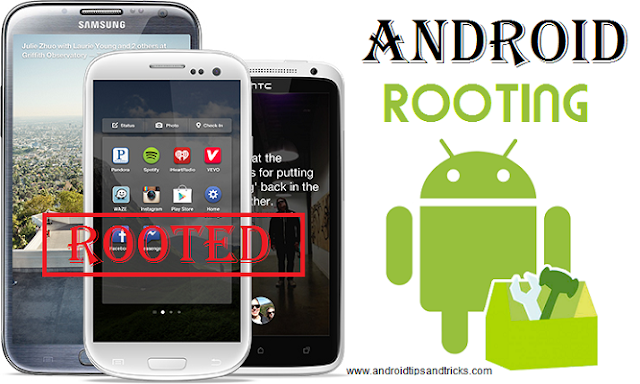If you are having an Android phone and planning to customize it, first of all, you need to root your Android device.Rooting your android open a world of possibilities.
What is Rooting..?
Rooting an Android device is equivalent to Jailbreak in Apple IOS. It is basically a modification process to the original system, in which the limitations are removed and full access is allowed.
Android phone is also designed with several limitations and restrictions by carriers or manufacturers for commercial concerns and also safety reasons thus this limitation can overcome by Rooting.
Rooting an Android device gives similar access to administrative permissions on Android Operating system thus resulting in the ability to alter or replace system applications and settings, run specialized apps that require administrator-level permissions.
Rooting installs the Superuser application, which supervises applications that are granted root or superuser rights by requesting approval from the user before granting the root access. Superuser provides administrator-level permissions to other applications.
Rooting facilitates the complete removal and replacement of the device's operating system, usually with a more recent release of its current operating system, Thus enhancing the system performance.
PROS of Rooting
- Remove Preinstalled Apps.
- Ability to install a custom firmware (also known as a custom ROM).
- Flash a Custom Kernal.
- Wireless Tethering.
- Block Ads in Any App
- Full control of the CPU (overclock CPU).
- Ability to install specialized apps.
- Boost Your Phone's Speed and Battery Life.
- Unlock Hidden Features.
- Automate Everything
- Ability to change Boot Animation.
- Ability to change user interface and many more.
CONS of Rooting
There are essentially three potential cons to rooting your Android.
- Warranty is Void: By rooting your Android your device Warranty is Voided, but keeping in mind that you can always unroot you can take the warranty back smartly. If due to any reason it's required to send back for repair, then simply flash the original ROM and thus no one will ever know that it was rooted.
- Risk of Breaking: Yes there is a risk of Breaking your device but is usually happens when you do not obey the instruction. Make sure that the guide you are following works for your device and the custom ROM you flash is designed specifically for your device. It can be avoided if you pay attention while rooting, charge your phone to at least 60% and do not disconnect the cable till the rooting process is completed while rooting using windows based software tool.
- Security risks: Rooting may introduce some security risks. Depending on what services or apps you use on your device after rooting, Sometimes rooting could create a security vulnerability. For example, Google refuses to support the Google Wallet service for rooted devices etc.
Root my Android or Not
So should you root your device? Basically, it is not necessary it totally depends on the user to user. If you are a normal android user then I think Rooting is not required since without rooting also android provide lots of features and customization
For advanced users, Rooting opens a world of possibilities where lots of things can be done with your device.
Anyway, the decision to ROOT your Android is one that should not be rushed into, Before proceeding read the instruction carefully the follow the steps as mentioned.
Please like, share the post and do comment on the comment section bellow if you have any query.

64FD150533
ReplyDeleteTakipçi Satın Al
EFT ile Takipçi
Tiktok Takipçi Atma